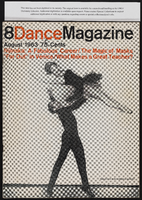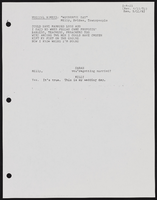Search the Special Collections and Archives Portal
Search Results
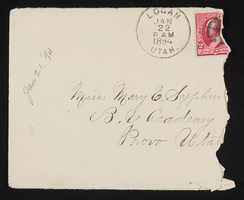
Letter and envelope from Laura, Panguitch, Utah to Mary Etta Syphus, Provo, Utah
Date
Archival Collection
Description
From the Syphus-Bunker Papers (MS-00169). The folder contains an envelope, a typed transcription of a letter, and a copy of original letter attached. The original letter is missing.
Text
Dr. Carolyn Reedom oral history interview
Identifier
Abstract
Oral history interview with Dr. Carolyn Reedom conducted by Kristina Knebl on November 22, 2006 for the Public School Principalship Oral History Project. In this interview, Dr. Reedom reflects upon her 28 years as a principal in Nevada’s Clark County School District (CCSD). She discusses the process by which she became an elementary school principal, and compares it with when she served as a high school principal. She discusses her approach to school administration, and how her experience as a 27-year old principal of Red Rock Elementary School shaped her career. She also describes her experience with school desegregation, and explains why she believes it was desegregation instead of integration.
Archival Collection

Transcript of interview with Harvey N. Dondero by Elizabeth N. Patrick, August 9, 1984
Date
Archival Collection
Description
Text
State of Nevada Educational Directories, Bulletins, and Certification Requirements
Identifier
Abstract
The State of Nevada Educational Directories, Bulletins, and Certification Requirements (1934-1991) contain bi-monthly bulletins, yearly directories, information to certify teachers, and retirement salaries.
Archival Collection
Mildred Mann Papers
Identifier
Abstract
The Mildred Mann Papers (1915-1995) contain documents related to her involvement in teaching ceramics and her work with the Independent Order of Odd Fellows. Included are correspondence, newspaper clippings, magazines, certificates, childhood school materials, manuals, photographs, a scrapbook, and newsletters. There are also Clark County Community College (CCCC) class schedules, real estate papers, and membership lists.
Archival Collection
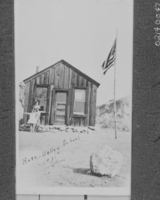
Photograph of Rose Valley School, Rose Valley, Nevada, 1931
Date
Archival Collection
Description
Image
Audio clip of an interview with Kenneth Fong by Lois goodall on February 22, 2014
Date
Archival Collection
Description
Sound
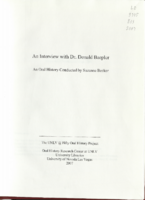
Transcript of interview with Dr. Donald Baepler by Suzanne Becker, April 23, 2007
Date
Archival Collection
Description
Text

